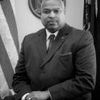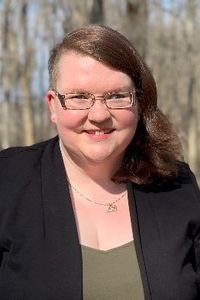Mikayla Ridley
Mikayla Ridley (Democratic Party) ran for election to the U.S. House to represent New York's 22nd Congressional District. She did not appear on the ballot for the Democratic primary on August 23, 2022.
Ridley completed Ballotpedia's Candidate Connection survey in 2021. Click here to read the survey answers.
Biography
Mikayla Ridley was born in Seattle, Washington. She received a bachelor's degree from Boston University in 2016. Ridley's professional experience includes being an admissions counselor at Binghamton University and working for a nonprofit.[1]
Elections
2022
See also: New York's 22nd Congressional District election, 2022
General election
General election for U.S. House New York District 22
Brandon Williams defeated Francis Conole in the general election for U.S. House New York District 22 on November 8, 2022.
Candidate | % | Votes | ||
| ✔ |  | Brandon Williams (R / Conservative Party)  | 50.5 | 135,544 |
 | Francis Conole (D) | 49.5 | 132,913 | |
| Other/Write-in votes | 0.1 | 151 | ||
| Total votes: 268,608 | ||||
 = candidate completed the Ballotpedia Candidate Connection survey. = candidate completed the Ballotpedia Candidate Connection survey. | ||||
| If you are a candidate and would like to tell readers and voters more about why they should vote for you, complete the Ballotpedia Candidate Connection Survey. | ||||
Do you want a spreadsheet of this type of data? Contact our sales team. | ||||
Withdrawn or disqualified candidates
- Steven Wells (Independence Party)
- Hal Stewart (Independent)
- James Desira (Independent)
- Francis Conole (Independence Party)
Democratic primary election
Democratic primary for U.S. House New York District 22
Francis Conole defeated Sarah Klee Hood, Sam Roberts, and Chol Majok in the Democratic primary for U.S. House New York District 22 on August 23, 2022.
Candidate | % | Votes | ||
| ✔ |  | Francis Conole | 39.5 | 10,971 |
 | Sarah Klee Hood  | 35.2 | 9,790 | |
 | Sam Roberts | 13.2 | 3,662 | |
 | Chol Majok | 11.9 | 3,315 | |
| Other/Write-in votes | 0.2 | 58 | ||
| Total votes: 27,796 | ||||
 = candidate completed the Ballotpedia Candidate Connection survey. = candidate completed the Ballotpedia Candidate Connection survey. | ||||
| If you are a candidate and would like to tell readers and voters more about why they should vote for you, complete the Ballotpedia Candidate Connection Survey. | ||||
Do you want a spreadsheet of this type of data? Contact our sales team. | ||||
Withdrawn or disqualified candidates
Republican primary election
Republican primary for U.S. House New York District 22
Brandon Williams defeated Steven Wells in the Republican primary for U.S. House New York District 22 on August 23, 2022.
Candidate | % | Votes | ||
| ✔ |  | Brandon Williams  | 57.4 | 14,351 |
 | Steven Wells  | 42.0 | 10,501 | |
| Other/Write-in votes | 0.6 | 141 | ||
| Total votes: 24,993 | ||||
 = candidate completed the Ballotpedia Candidate Connection survey. = candidate completed the Ballotpedia Candidate Connection survey. | ||||
| If you are a candidate and would like to tell readers and voters more about why they should vote for you, complete the Ballotpedia Candidate Connection Survey. | ||||
Do you want a spreadsheet of this type of data? Contact our sales team. | ||||
Conservative Party primary election
The Conservative Party primary election was canceled. Brandon Williams advanced from the Conservative Party primary for U.S. House New York District 22.
Working Families Party primary election
Withdrawn or disqualified candidates
- Joshua Goldfein (Working Families Party)
Campaign themes
2022
Ballotpedia survey responses
See also: Ballotpedia's Candidate Connection
Mikayla Ridley completed Ballotpedia's Candidate Connection survey in 2021. The survey questions appear in bold and are followed by Ridley's responses.
| Collapse all
- National problems require national solutions. I’ve spent my career on the ground dealing with systemic injustice and inequality on an individual and community level. This work is so important, but it will never be enough until we fix the root of the problems. And Congressional Representatives have the ability to make that change.
- We are one of the wealthiest countries in the world, and we need to use that power for good. From healthcare to education to food and shelter to participation in governance, we have the financial ability to guarantee these basic human rights for everyone. And, with issues this important, the financial ability to do it means the moral obligation to make it happen.
- Common ground is more important than compromise. Meeting in the middle is not always what’s best for the people, but when we put people first, we can find bipartisan solutions that will make our country stronger together.
My personal identity also shapes my political goals and my approach to public policy. Having come out as bisexual near the end of high school, I focused a lot of my time in college on activism in the LGBTQIA+ community and discovered a passion for social justice, equity, and inclusion. I began to shape my career around a desire to support and advocate for others. This meant that, as we built our campaign, we focused on human rights and codifying them into law. Basic human rights like healthcare, education, food and shelter, employment, living wages, equal participation in governance, and a livable planet are not luxuries. Every single member of our society needs these basic services to survive and thrive. And we plan to make that happen in Congress.
She is a brilliant woman who taught me the importance of science, data, and critical thinking, but the most valuable lesson I learned from her was the one she never covered in the classroom. She is someone who took the very worst that life could throw at her and used it to fuel her fire and make the world a better place. Hardship has only ever made her stronger and kinder, and she has passionately served as a public school teacher for over three decades now.
Another important characteristic is understanding the difference between being principled and appearing principled. This can be a challenge for elected officials whose jobs largely depend on positive public image, but it is essential to being a good Representative. Too often in Congress, politicians “stand their ground” only to appear strong in the public eye. They refuse to agree to “something that is better than nothing” and so, instead, we achieve nothing. And it goes in the other direction, too. Democrats especially will adopt woefully inadequate responses to corruption and will accept injustice under the guise of “being the bigger person.”
Complexity is often seen as something negative in politics (and in our society in general). “It’s complicated” is synonymous with “I don’t want to talk about it” and, too often, it’s synonymous with “I don’t know.”
But “it’s complicated” should not be the end of the conversation. It should be the beginning. Politics are complicated. There are nuances and caveats and clarifications to every political issue. We often want things to be simple so that we can easily know which side to stand on, but tax structures and healthcare and education and criminal justice reform are not simple issues.
Extremist policies can be explained in a few words or sentences. Moderate policies cannot. Progressive Democrats are the moderate middle-ground voices of America, but we consistently fail in our messaging because we attempt to boil nuanced and detailed policies down to hashtags and catch phrases.
Accepting complexity for what is—an essential and unavoidable element of a thriving democracy—is the only way that we can live up to our Constitution’s promise and “secure the blessings of liberty to ourselves and our prosperity.”
Being born in the early-90s, I grew up with the books and Hermione was always a feminist role model for me. Plus, you know, magic powers would be really fun!
But the House of Representatives doesn’t require us to choose. The House is a governing body of 435 people meant to genuinely represent the entire United States of America. So the most effective House would actually be a mix of many ages, races, sexual orientations, genders, abilities, religions, and—yes—a mix of booth career politicians (who know how to get things done) and political outsiders (who know, from experience, what needs to be done).
When we see sexism in our country, many suggest that women should stop being so sensitive because it’s not that bad. When we see racism, many suggest that we should stop talking about race so much and “move on.” When we see homophobia, biphobia, transphobia, many suggest that we LGBTQ folks should just “leave it to the bedroom” because it’s only a problem when we make it a problem. And when we see political divide in Congress, many people suggest that we should just meet in the middle between the two party’s proposals, whatever they may be. But in our current system both parties are skewed far right. The middle ground between the two parties is not the middle ground between the two sides. And when it comes to issues of discrimination and injustice, the middle ground between oppression and equality is simply not an acceptable option. Ignoring the problem will never make it go away.
Note: Ballotpedia reserves the right to edit Candidate Connection survey responses. Any edits made by Ballotpedia will be clearly marked with [brackets] for the public. If the candidate disagrees with an edit, he or she may request the full removal of the survey response from Ballotpedia.org. Ballotpedia does not edit or correct typographical errors unless the candidate's campaign requests it.
See also
2022 Elections
External links
Footnotes
- ↑ Information submitted to Ballotpedia through the Candidate Connection survey on June 3, 2021








